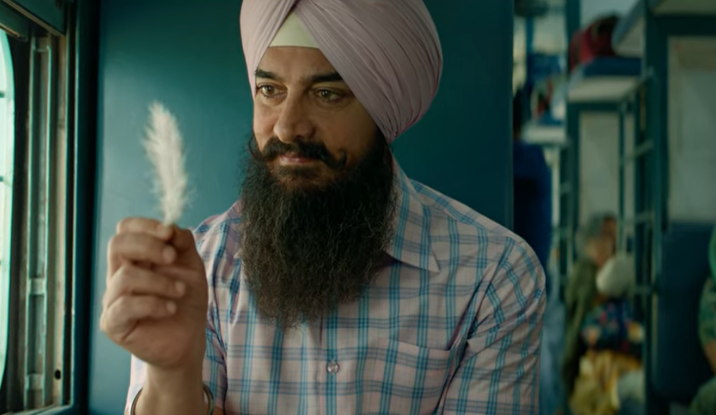‘Dhoom 3’ (2013) was the first Aamir Khan starrer that had music by Pritam. After this film, Pritam went on to compose a good, thematic soundtrack for Khan’s home production ‘Dangal’ (2016). The actor-producer and the composer have joined hands again for ‘Laal Singh Chaddha’ which happens to be an official remake of the English film ‘Forrest Gump’ (1994).
For this particular film’s music, Aamir Khan and his team decided to opt for a very interesting marketing strategy. Songs, without any visuals from the film, started getting released as singles. Later, the team re-released these songs with video tracks. One has good expectations from the album which has Pritam and lyricist Amitabh Bhattacharya teaming up for the umpteenth time.
The album opens with “Kahani” which also happens to be the first song to be released from the album. The song boasts of a wonderful tune that is free-flowing and feels wholesome at the same time. “Yeh hatheli ki lakeeron mein likhi saari hai, ya zindagi hamaare iraadon ki maari hai….” – the verses written by Amitabh Bhattacharya have a philosophical bent to them. Mohan Kannan sings the song wonderfully in his velvety voice. The alternate version of the song features Sonu Nigam as the lead vocalist. Though the song suits Kannan more than Nigam, the latter does complete justice to it as well.
“Main Ki Karaan?” begins with Aamir Khan narrating a few lines in Punjabi as Laal Singh Chaddha. Through these lines, the character shares the feelings he went through when he fell in love for the first time. The narration sets the tone for the song which is essentially about first love. Pritam’s tune has a nice sing-along quality to it and is backed by some wonderful arrangements put together by Anurag Saikia, DJ Phukan, Sunny M.R. and Zafar Ansari. The music pieces featuring an acoustic guitar (Ishaan Das) and stringed instruments (Tapas Roy) leave a huge mark. Sonu Nigam brings out the innocence in the song to the fore with his lovely rendition.
The way Arijit Singh hums out the prelude section of “Phir Na Aisi Raat Aayegi” make you sit back and listen to it with rapt attention. Parts of the song reminded me of “Khairiyat” (‘Chhichhore’) and a few other melodic pieces from some of the other songs composed by Pritam in the recent past. The feel/theme of the song is quite similar to “Ae Dil Hai Mushkil” (‘Ae Dil Hai Mushkil). The song, however, has its own individuality and keeps you engaged throughout its entire duration.
Arijit Singh opens “Tur Kalleyan” with an evocative line and then, lets Shadab Faridi and Altamash Faridi lead the song. The song arrives at an important juncture in the film when Laal runs across the country and is going through several emotions in his head. The composition has many layers to it and surprises you at every juncture. The Faridi brothers do a splendid job at rendering the track. “Bekaar talaashe tu dargaah mein shivaalon mein, jis yaar ko tu dhoondhe woh tere hi andar hai…” – Amitabh Bhattacharya’s lyrics are one of the highlights of the song. The arrangements, however, feel a little muted for the song. A song of this nature would have soared if Indian instruments had been used more extensively, especially in the portions when it hits a crescendo.
“Tere Hawaale”, sung by Arijit Singh and Shilpa Rao, is the most immersive song on the album. The song talks about and is steeped in melancholy. However, the one thing that truly impresses you as a listener is how Pritam and his team of arrangers have designed it like a devotional song. “Khud pe haq mera tere hawaale kar diya, jism ka har ruaan tere hawaale kar diya…” – since the song talks about devoting oneself to love, taking this route was a very good decision.
The music of ‘Laal Singh Chaddha’ towers above the soundtrack of all the films Aamir and Pritam have done together. Innocence and an old-world charm are the two things that are common to all the songs on the album. One also observes the signs of a very interesting creative decision taken while creating this soundtrack. Since the protagonist hails from Punjab and is a Sikh, Punjabi words have been used in the songs but sparsely. Perhaps, the creative team wanted the songs to have an essence of the film and the characters but at the same time, they did not want to alienate those who don’t speak or understand Punjabi by using too many Punjabi words in the songs.

